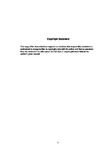‘Lady Mary Wortley Montagu’s The Turkish Embassy Letters (1763): Agency, Authority and the “female spirit of contradiction”’‘Lady Mary Wortley Montagu’s The Turkish Embassy Letters (1763): Agency, Authority and the “female spirit of contradiction”’
| dc.contributor.supervisor | Napier Gray, Kathryn | |
| dc.contributor.author | Lester, Michelle Marie | |
| dc.contributor.other | Faculty of Arts, Humanities and Business | en_US |
| dc.date.accessioned | 2019-07-31T10:44:50Z | |
| dc.date.available | 2019-07-31T10:44:50Z | |
| dc.date.issued | 2019 | |
| dc.identifier | 706209 | en_US |
| dc.identifier.uri | http://hdl.handle.net/10026.1/14727 | |
| dc.description.abstract |
The Turkish Embassy Letters is considered both inaugural and atypical of women’s travel writing, and scholarship is largely orientated around Montagu’s focus on women and their lives in the different countries she travelled to and stayed in between 1716 – 18. While this dissertation maintains a primary engagement with gender, it evaluates the text’s participation in myriad discourses and genres of the Restoration and early Augustan period. The cultural conditions that saw a significant growth in female participation in the world of print and, thereby, in intellectual exchange with men - often in writings loosely operating within a ‘Republic of Letters’ - act as the shaping context for my analysis of her construction of agency and authority in her epistolary travel narrative. The dissertation begins with a rare consideration of the Letters’ emulation of popular ‘Grand Tour’ narratives and examines how Montagu self-fashions as a female Grand Tourist. I propose that Montagu’s ‘double-voiced’ strategy of conformity and repudiation, while characteristic of proto-feminist writing of the day, effects the innovation for which the text is often acclaimed. Attention to Montagu’s use of satire, imitation and translation gives rise to analyses of her letters to Alexander Pope and Antonio Conti which at least partially challenge conventional accounts of her friendship with each of these ‘Men of Letters’ and propose the subversive elements of her correspondence. I conclude with an examination of Montagu’s negotiation of the role of motherhood, rarely a focus of scholarship of a text nevertheless written by a woman who travelled to Turkey with a young son and there gave birth to a daughter. I argue that Montagu’s Letters demonstrate a preoccupation throughout with the social and cultural roles available to women, while a consistent attention to the narrative unity of the Letters offers a reading which sees the text’s form as paradigmatic of Montagu’s message of unity over division. | en_US |
| dc.language.iso | en | |
| dc.publisher | University of Plymouth | |
| dc.rights | Attribution-NonCommercial-NoDerivs 3.0 United States | * |
| dc.rights.uri | http://creativecommons.org/licenses/by-nc-nd/3.0/us/ | * |
| dc.subject | Eighteenth Century Literature | en_US |
| dc.subject | Travel writing | |
| dc.subject | Women's writing | |
| dc.subject | Female agency | |
| dc.subject | Female authority | |
| dc.subject | Women and the Grand Tour | |
| dc.subject | Republic of Letters | |
| dc.subject | Women writing about motherhood | |
| dc.subject | Motherhood, women's writing about | |
| dc.subject.classification | ResM | en_US |
| dc.title | ‘Lady Mary Wortley Montagu’s The Turkish Embassy Letters (1763): Agency, Authority and the “female spirit of contradiction”’‘Lady Mary Wortley Montagu’s The Turkish Embassy Letters (1763): Agency, Authority and the “female spirit of contradiction”’ | en_US |
| dc.type | Thesis | |
| plymouth.version | publishable | en_US |
| dc.identifier.doi | http://dx.doi.org/10.24382/636 | |
| dc.rights.embargoperiod | No embargo | en_US |
| dc.type.qualification | Masters | en_US |
| rioxxterms.version | NA |
Files in this item
This item appears in the following Collection(s)
-
01 Research Theses Main Collection
Research Theses Main



